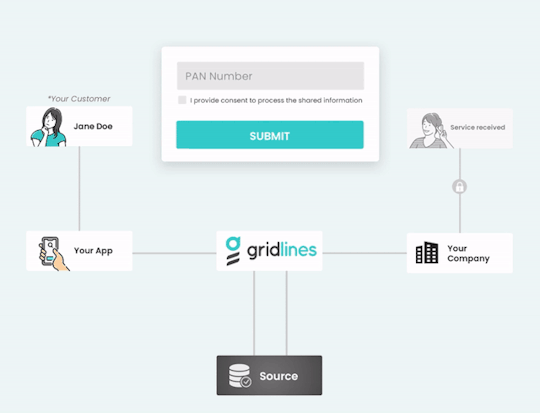#EPFO data
Explore tagged Tumblr posts
Text
Formal job creation may hit record high in FY 2024-25; here’s what EPFO data suggests | India-Business News
India is poised to witness record-breaking formal job creation in the fiscal year 2024-25, hinting strong hiring activity supported by robust economic growth. According to provisional data released by the Employees’ Provident Fund Organisation (EPFO), the net addition of formal jobs in the first 11 months of the fiscal year 2024-25 has already reached 13.22 million. This figure has surpassed the…

View On WordPress
#.CloudServiceBaseResponse.data.Children.MetaInfoFields(id=17#business confidence employment)#economic recovery India#EPFO data#formal employment growth#value=job creation India
0 notes
Text
EPFO Adds 19.14 Lakh Net Members In April 2025 | Economy News
New Delhi: The Employees’ Provident Fund Organisation (EPFO) added 19.14 lakh members in April 2025, according to provisional payroll data from the Union Ministry of Labour and Employment. This figure represents a significant increase of 31.31 per cent over March 2025. Year-on-year analysis revealed a 1.17 per cent rise in net payroll additions compared to April 2024, indicating increased…
0 notes
Text
KYC Problems/Data Mismatch? We Can Help!
Nowadays, a simple data mismatch can lead to widespread challenges in the digital finance space. KYC disruptions can go along way toward savage your day - whether its something as your name is not accurate, date of birth is not included, or simply records in your Aadhaar or PAN are outdated. Because of KYC disruptions, you may experience EPFO claim rejections, lack of performance, account restrictions/freezes, and even lose potential loans with unhelpful freezing algorithms.
As we work at Fundwise, it is important to appreciate just how frustrating and confusing KYC issues can be. Its our role to offer guidance through the document, EPFO and bank level KYC resolutions in familiar step-wise processes to update your data correctly through faulty Form 11, Joint Declaration Form or KYC submission processes unique to banking purposes in error free formats/versions.
✅ Personal Support to assist with each of your intended financial goals
✅ Fast track document updating and declaration
✅ Informed & compliant Support - if we don’t know - we will find someone who does!
KYC issues put strong breaks on the progress you are trying to make financially; So don’t let ongoing issues and faulty pensions functions defeat purposeful change! Contact Fundwise and let us make compliance simple and relative!
📞 +91 9112013515 | ✉️ [email protected]
🌐 fund-wise.in

#KYCissues#DataMismatch#EPFOClaimHelp#FinancialCompliance#FundwiseSupports#AadhaarFormatting#LastNameMismatch#PFFormDifficulties
0 notes
Text
Khetavani, a rising name in sustainable agri-tech solutions, has been transforming traditional farming practices with modern technology and farmer-first platforms. As their reach expanded across rural and semi-urban India, ensuring credibility and compliance became a top priority—especially while onboarding vendors, verifying partners, and applying for government-linked schemes.
To support their growth with reliable data and faster decision-making, Khetavani partnered with Finanvo. The platform’s verified database of GST information, PAN records, MSME details, and EPFO profiles helped Khetavani evaluate stakeholders with confidence and avoid costly errors in vendor selection.
“Finanvo allowed us to validate entities before entering any financial engagement,” said the co-founder of Khetavani. “This helped us stay transparent and build trust with both investors and farming communities.”
Moreover, when applying for agri-tech grants and startup benefits, Khetavani used Finanvo to present a verified, audit-ready profile that fast-tracked their documentation.
In a sector where integrity and grassroots trust are everything, Finanvo has empowered Khetavani to grow smarter, safer, and stronger—without compromising their values or vision.
0 notes
Text
Gridlines: Powering Seamless Digital Verification for India’s BFSI Sector
India’s BFSI (Banking, Financial Services, and Insurance) landscape is undergoing a digital transformation at an unprecedented pace. With users expecting instant services and regulators demanding rigorous compliance, companies across the board — from neobanks and NBFCs to insurers and wealth platforms — face a critical challenge: how to deliver fast, secure onboarding and verification while minimizing risk.
This is where Gridlines steps in — a powerful digital verification API suite built for the BFSI industry. With 150+ plug-and-play APIs, Gridlines enables real-time identity verification, KYC/KYB checks, and contextual underwriting — helping businesses scale securely and efficiently.

Why Digital Verification Needs a Smarter Solution
Manual verification methods are not just time-consuming; they’re also prone to errors, drop-offs, and compliance issues. Traditional processes often involve document uploads, in-person visits, or fragmented data checks — all of which hamper the user experience.
Gridlines solves this by offering end-to-end digital verification tools that plug directly into existing onboarding flows. The result? Instant identity confirmation, better risk profiling, and a seamless user journey — all while meeting India’s evolving regulatory standards.
Core Use Cases: Gridlines in Action Across BFSI
1. Digital Onboarding: Seamless, Secure, and Swift
Challenge: Lengthy manual onboarding processes lead to high user abandonment rates. Solution: Gridlines digitizes every step with:
Aadhaar, PAN, Passport, and Voter ID verification
Face match and liveness detection
RBI-compliant Video KYC
Mobile-Aadhaar/PAN linking
Instant bank account verification
With these tools, companies reduce onboarding times from days to minutes — while staying compliant.
2. Lending: Contextual Underwriting for Salaried & Self-Employed
Challenge: Different borrower profiles demand unique risk assessment models. Solution: Gridlines provides segment-specific APIs:
For Salaried Applicants:
PAN-UAN linking
EPFO passbook and employment history
Video KYC
For Self-Employed Applicants:
PAN-GSTIN mapping
GST filing data
Bank statement analysis
This ensures credit decisions are based on reliable, real-time financial indicators.
3. Digital Banking: Compliance-First, User-Ready
Challenge: Banks must meet regulatory requirements without compromising UX. Solution: Gridlines ensures end-to-end compliance through:
Aadhaar, PAN, Passport verification
AML and sanctions screening
Face match and liveness detection
DIN/directorship verification
Secure Video KYC
This builds trust from day one while reducing fraud risks.
4. Insurance: Underwrite & Settle with Confidence
Challenge: Delays in identity/risk verification slow down policy issuance and claims. Solution: Gridlines accelerates the process with:
Identity and address verification
Bank account validation for claim payouts
Court and criminal records check
Income and employment verification
Insurers can now onboard customers faster and settle claims without friction.
5. WealthTech: Personalization with Verified Financial Data
Challenge: Creating personalized financial journeys often requires manual data entry. Solution: Gridlines helps WealthTech platforms access verified financial signals directly:
EPFO/UAN data for retirement planning
PAN-DIN mapping for investor profiling
Bank statement insights for investment suitability
This ensures accurate recommendations and a tailored user experience.
What Makes Gridlines the BFSI Sector’s Preferred API Suite?
With over 3,000+ financial institutions relying on Gridlines, here’s what sets it apart:
Fast API integration & SDKs: Easily embed verification flows into any digital journey.
Security you can trust: ISO 27001 and SOC 2 Type II certifications.
Real-time and bulk data processing: Built for high-scale BFSI environments.
Plug-and-play architecture: Reduce go-to-market time dramatically.
Startup-focused initiatives: Gridlines’ dedicated StartUp Program accelerates innovation for early-stage fintechs.
Final Word: Build Smarter, Verify Faster with Gridlines
Whether you're a lender looking to streamline underwriting, a neobank striving for smoother onboarding, or an insurer aiming to process claims faster — Gridlines provides the digital foundation you need to move fast without breaking compliance.
Its expansive API suite, robust security, and deep BFSI focus make Gridlines the verification partner of choice for future-ready financial institutions.
0 notes
Text
Audiobooks for EPFO Exam: The Smart Way to Prepare
Download the App

The Employees’ Provident Fund Organisation (EPFO) exam, conducted by UPSC for the posts of EO/AO (Enforcement Officer/Accounts Officer) and APFC (Assistant Provident Fund Commissioner), is a highly competitive exam that requires thorough preparation in General Studies, Indian Economy, Labour Laws, and Quantitative Aptitude. Given the vast syllabus, audiobooks provide an efficient, flexible, and time-saving approach to learning.
Why Choose Audiobooks for EPFO Preparation?
Study Anytime, Anywhere – Listen to lessons while traveling, exercising, or doing daily tasks.
Better Retention – Audio learning improves understanding and memory.
Time-Saving – Quick and effective revision without the need to read long texts.
Multi-tasking – Learn while managing other responsibilities.
Less Eye Strain – Reduces dependency on screens and printed books.
Best Audiobooks for EPFO Exam Preparation
Here are some of the top books available in audiobook format to help aspirants prepare effectively:
1. Indian Economy by Ramesh Singh
Covers economic concepts, policies, and financial systems.
Essential for understanding EPFO’s role in the Indian economy.
2. Indian Economy Key Concepts by Sankarganesh Karuppiah
Provides easy explanations of economic concepts and terms.
Helps in quick revision and concept clarity.
3. Indian Polity by M. Laxmikanth
Covers Constitution, Governance, and Administrative Laws.
Important for EPFO’s legal and policy-related questions.
4. Labour and Industrial Laws by S.N. Mishra
Explains various labour laws, employment regulations, and industrial relations.
A must-read for Labour Laws and Social Security topics in the EPFO exam.
5. Social Security Laws by H.L. Kumar
Detailed analysis of Provident Fund laws, Employee Benefits, and Social Security Schemes.
Highly relevant for EPFO’s job responsibilities and exam syllabus.
6. General Studies by Manohar Pandey (Arihant)
Covers History, Geography, Polity, Economy, and Science.
Ideal for General Knowledge section of the EPFO exam.
7. Quantitative Aptitude by R.S. Aggarwal
Includes Arithmetic, Algebra, Geometry, and Data Interpretation.
Helps in solving numerical and logical reasoning questions quickly.
8. A Modern Approach to Verbal & Non-Verbal Reasoning by R.S. Aggarwal
Covers logical reasoning, puzzles, and analytical skills.
Essential for EPFO’s reasoning and decision-making section.
9. Word Power Made Easy by Norman Lewis
Improves vocabulary, grammar, and comprehension.
Useful for English Language and Descriptive Writing sections.
10. Lucent’s General Knowledge
Provides concise information on important topics like History, Geography, and Science.
Helps in static GK preparation.
11. Manorama Yearbook
A comprehensive source for current affairs and general awareness.
Important for keeping up with recent developments related to EPFO and government policies.
12. EPFO Previous Year Papers by Kiran Publications
Includes previous year’s questions with detailed explanations.
Helps in understanding the exam pattern and frequently asked questions.
13. Indian Financial System by Bharati V. Pathak
Covers Banking, Insurance, and Financial Regulations.
Useful for EPFO aspirants preparing for financial and social security topics.
14. Current Affairs Compilations (Various Sources)
Monthly updates on National and International Affairs, Economic Policies, and Government Schemes.
Essential for staying updated with recent developments.
Where to Find EPFO Audiobooks?
Aspirants can now access EPFO exam audiobooks on the Audicate app. Audicate offers high-quality audiobooks covering Indian Economy, Labour Laws, Social Security, General Studies, and Quantitative Aptitude, making it an essential tool for EPFO preparation.
Conclusion
The EPFO exam requires in-depth knowledge of Economics, Labour Laws, Social Security, and Current Affairs. Audiobooks provide an efficient and flexible method for aspirants to prepare effectively while saving time. With Audicate, students can listen, learn, and excel in their exam journey.
Start your EPFO preparation with audiobooks on Audicate today!
0 notes
Text
PF Settlements During Last 10 Years: Govt Gives Official Data Of Total Claims And Amount Settled | Personal Finance News
New Delhi: Minister Of State For Labour And Employment (Sushri Shobha Karandlaje) has given the official estimate of data relating to the total number of final PF settlements during the last 10 years. The minister was sought details of the total number of applications received and processed successfully by the EPFO along with the amount of such withdrawals during the last ten years, against…
0 notes
Text
Say Goodbye to Long Waits: EPFO 3.0 Promises Instant Access to Your Money
” Everything about EPFO 3.0, the latest update enabling ATM withdrawals of PF funds. Learn about its features, benefits, challenges, and how it transforms provident fund management. Stay informed with the latest data and SEO insights on EPFO 3.0 rollout, AI tools, UPI integration, and more! “ The Employees’ Provident Fund Organisation (EPFO) is set to launch its latest version, EPFO 3.0, which…
#ATM withdrawal of PF funds#EPFO 3.0#EPFO 3.0 benefits#EPFO 3.0 features#EPFO 3.0 latest update#EPFO 3.0 mobile app#EPFO 3.0 online portal#EPFO 3.0 UPI integration#EPFO ATM card#EPFO digital transformation
0 notes
Text
What Should I Do After B.Com? Career & Job Opportunities
What Should I Do After B.Com? | Career Options & Best Paths
हर B.Com graduate के ��न में एक ही सवाल आता है – "अब आगे क्या करें?" The Bachelor of Commerce degree opens up multiple career avenues. लेकिन सही रास्ता चुनना confusing हो सकता है। इस article में हम जानेंगे कि B.Com के बाद कौन-कौन से career options available हैं और कौन सा आपके लिए best रहेगा। Let us discuss what should I do after B Com
1. Higher Education के Options | Advanced Studies for Better Career
अगर आप पढ़ाई जारी रखना चाहते हैं, तो कई बेहतरीन courses available हैं। Higher studies करने से आपकी job opportunities और salary potential दोनों बढ़ जाते हैं।
A. M.Com – Master of Commerce
अगर आप commerce field में गहराई से knowledge लेना चाहते हैं, तो M.Com एक अच्छा option है। यह course finance, taxation और accounting में expertise देता है।
B. MBA – Master of Business Administration
MBA एक highly preferred choice है। यह आपको business management, marketing और finance में leadership roles के लिए तैयार करता है। CAT, MAT, XAT जैसे entrance exams देकर top business schools में admission लिया जा सकता है।
C. CA, CS, CMA – Professional Courses
अगर आप specialization चाहते हैं, तो Chartered Accountancy (CA), Company Secretary (CS) और Cost & Management Accountancy (CMA) courses बेहतरीन विकल्प हैं।
· CA – Accounting और auditing में best career option है।
· CS – Corporate law और governance में interest रखने वालों के लिए बढ़िया choice।
· CMA – Cost management और financial planning में future बनाना चाहते हैं?
2. सरकारी नौकरी के लिए तैयारी | Government Jobs After B.Com
अगर आप job security चाहते हैं, तो government jobs एक अच्छा option हो सकता है।
A. Banking Sector Jobs
SBI PO, IBPS Clerk, RBI Grade B जैसी exams देकर आप banking sector में नौकरी पा सकते हैं।
B. UPSC और SSC Exams
अगर आप civil services या central government jobs में जाना चाहते हैं, तो UPSC और SSC CGL जैसी exams की तैयारी कर सकते हैं।
C. Railways और अन्य Government Jobs
रेलवे, LIC, EPFO, और State Public Service Commission (PSC) के exams भी अच्छे options हैं।
3. Private Jobs के लिए Best Career Paths | Private Sector Opportunities
अगर आप जल्दी job चाहते हैं, तो private sector के कई career options available हैं।
A. Accountant और Tax Consultant
B.Com के बाद accounting और taxation में job आसानी से मिल सकती है। Tally, GST और Income Tax की knowledge होना जरूरी है।
B. Digital Marketing और E-Commerce
आज के समय में digital marketing, SEO, और e-commerce booming fields हैं। Google और HubSpot के free courses से आप skills सीख सकते हैं।
C. Business Analyst और Financial Analyst
अगर numbers और data में interest है, तो यह field आपके लिए best रहेगी।
D. Insurance और Stock Market Jobs
Stock market में investment advisor, mutual fund expert या insurance consultant बन सकते हैं।
4. खुद का Business Start करें | Entrepreneurship After B.Com
अगर आप job नहीं करना चाहते, तो business एक शानदार option है।
A. Small Business और Startups
E-commerce, retail business या freelancing शुरू कर सकते हैं।
B. Blogging और Content Writing
अगर आपको लिखना पसंद है, तो blogging या content writing में अच्छा पैसा कमाया जा सकता है।
C. Affiliate Marketing और Freelancing
Freelancing platforms जैसे Fiverr, Upwork और Freelancer पर online काम किया जा सकता है।
5. Short-Term Courses से Skills बढ़ाएं | Best Certification Courses After B.Com
अगर आप जल्द job पाना चाहते हैं, तो short-term courses सबसे अच्छा तरीका हैं।
· Tally & GST Course – Accounting field में career बनाने के लिए।
· Digital Marketing – SEO, Google Ads, और Social Media Marketing सीखें।
· Data Analytics & Business Intelligence – Python, Excel, और Power BI सीखकर analyst बनें।
· Investment Banking Course – Finance sector में high-paying job के लिए।
Final Thoughts | B.Com के बाद क्या करें?
B.Com के बाद आपके पास कई career options हैं। अगर job जल्दी चाहिए, तो short-term courses करें। अगर higher salary चाहिए, तो MBA या CA करें। अगर independent बनना चाहते हैं, तो business शुरू करें।
E Accounting Courses ,
Diploma in Taxation ,
courses after 12th Commerce ,
after b.com which course is best ,
Diploma in accounting ,
SAP ficoTraining in delhi ,
Accounting and Taxation Course ,
GST Practitioner Course ,
Computer Course for jobs ,
Payroll Course in Delhi,
Tally Computer Course ,
diploma course after b com ,
Advanced Excel Course in Delhi ,
Computer ADCA Course
Data Entry Operator Course,
diploma in banking finance ,
stock market trading Course in Delhi,
six months course in accounting
Blog
Income Tax
Accounting
Tally
Career

1 note
·
View note
Text
Must-Know Laws to Hire Dedicated Developers in India
Hiring dedicated developers in India is a strategic decision for businesses looking to scale efficiently and access a vast pool of technical talent. With its competitive rates, high-quality work, and a growing IT ecosystem, India has become a global outsourcing hub. However, before you hire dedicated developers in India, it’s essential to navigate the complex legal landscape to ensure compliance and avoid any potential risks.

In this blog post, I’ll provide a detailed overview of the key laws, employment classifications, contracts, tax implications, and compliance measures to help you hiring dedicated developers in India without any legal pitfalls.
Legal Framework for Hiring Developers in India
When hiring developers in India, understanding the legal framework is crucial to avoid potential challenges. Several laws regulate the employment of developers, and it’s essential to ensure compliance with these rules.
1) Key Employment Laws to Understand:
Indian Contract Act, 1872: This act governs the relationship between employers and employees. It lays down the rules for creating enforceable contracts, including employment agreements.
The Information Technology (IT) Act, 2000: This act covers issues related to electronic contracts, data security, and cybersecurity. It is especially relevant when working with remote developers on digital projects.
Shops and Establishments Act: This act regulates the working hours, conditions, leave policies, and termination procedures for employees working in various sectors, including IT.
2) Types of Employment: Full-Time vs. Contract vs. Freelance:
When hiring dedicated developers in India, it’s essential to know the different employment classifications:
Full-Time Employees: Full-time employees are entitled to benefits like paid leave, provident fund (PF), health insurance, and retirement benefits. They are subject to income tax and other labor laws.
Independent Contractors: Independent contractors or vendors work on a project basis. These developers typically have fixed contracts with agreed deliverables and timelines.
Freelancers: Freelancers offer flexible work arrangements and are typically hired on a short-term basis. Clear agreements regarding payment, work scope, and timelines are essential.
3) Regulatory Bodies Overseeing IT Employment in India:
Several government agencies oversee labor regulations, employee benefits, and taxation for IT businesses in India:
Ministry of Labour & Employment: Ensures compliance with labor laws in India.
Employees’ Provident Fund Organization (EPFO): Regulates provident fund benefits for employees.
Income Tax Department: Manages taxation and ensures tax compliance for salaries, contractors, and freelancers.
Essential Legal Documents for Hiring Indian Developers
To ensure a smooth legal process when hiring developers in India, certain legal documents must be in place. These documents safeguard your business interests and clarify the terms of employment or service.
1) Employment Contracts (For Full-Time Developers):
A well-drafted employment contract for full-time employees should include:
Scope of Work: Define the job role, responsibilities, and reporting structure.
Compensation and Benefits: Specify the salary structure, bonuses, tax deductions, and additional benefits such as insurance and leave.
Termination Terms: Clearly outline notice periods, severance pay, and grounds for termination.
Confidentiality and Non-compete Clauses: Ensure that the developer cannot work for competitors or disclose sensitive company information.
2) Service Agreements (For Contractors & Freelancers):
For independent contractors or freelancers, a service agreement should be signed. This agreement should cover:
Payment Terms: Define payment schedules, whether milestone-based or hourly, and late payment penalties.
Project Deliverables: Clarify the expected deliverables, timelines, and quality standards.
Dispute Resolution: Outline dispute resolution methods, such as arbitration or mediation.
Liability & Indemnity: Specify the contractor’s liability for any damages or delays caused by their work.
3) Non-Disclosure Agreements (NDAs):
NDAs are crucial for protecting confidential information. A solid NDA should include:
Confidentiality Obligations: Developers should agree not to share proprietary information with third parties.
Data Protection: Specify the rules for handling sensitive data, including client information and code.
Penalties for Breach: Define the consequences if the developer violates confidentiality terms.
4) Intellectual Property (IP) Agreements:
IP agreements are necessary to protect software ownership. These agreements should clearly state:
Ownership of Code: Specify who retains ownership of the code or product developed.
Restrictions on Use: Developers should agree not to reuse or redistribute code without prior consent.
Legal Remedies: Outline the legal recourse available in case of IP disputes.
Taxation & Compliance for Hiring Dedicated Developers in India
Understanding the tax implications and compliance requirements is essential when hiring developers in India.
1) Tax Deducted at Source (TDS) & GST:
TDS (Tax Deducted at Source): When hiring Indian developers, you must deduct a 10% tax on payments made to freelancers. Full-time employees are subject to income tax based on the applicable income tax slabs.
GST (Goods and Services Tax): If the freelancer or contractor’s annual earnings exceed INR 20 lakh, they are required to register for GST, which is levied at 18% for IT services.
2) Foreign Exchange Management Act (FEMA):
FEMA regulates all cross-border payments. If you’re hiring developers from outside India, ensure that payments are made via authorized channels like SWIFT, NEFT, or online platforms such as PayPal or Wise. Compliance with FEMA ensures that payments are made in accordance with India’s foreign exchange regulations.
3) Employee vs. Contractor Tax Responsibilities:
Employees: Full-time employees are subject to income tax, provident fund (PF), and Employee State Insurance (ESI), which are deducted by the employer.
Contractors/Freelancers: Contractors and freelancers are responsible for paying their taxes and GST. They are also required to pay self-employment taxes.
Employee Benefits & Labor Regulations in India
1) Key Employee Benefits:
Full-time employees in India are entitled to a range of benefits, including:
Provident Fund (PF): Mandatory for companies with more than 20 employees.
Gratuity: Paid to employees who have completed at least five years of service.
Employee State Insurance (ESI): Required for employees earning below INR 21,000 per month.
2) Mandatory Compliance Measures:
Professional Tax: Certain Indian states levy professional taxes on employees, which must be deducted from their salaries.
Notice Period and Severance: When terminating an employee, a notice period or severance pay is mandatory as per Indian labor laws.
Intellectual Property Rights & Data Protection
1) Code Ownership in Software Development:
When hiring developers, it’s crucial to clarify ownership rights over the code. Typically, the employer (or client) retains ownership of the software developed, while the developer may have certain rights to use the code for personal or non-commercial purposes. Ensure that the IP agreement is signed at the start of the project.
2) Data Protection & Cybersecurity:
India’s Information Technology (IT) Act, 2000 mandates that businesses follow data protection protocols to safeguard user data. For businesses handling sensitive client or user information, adopting GDPR (General Data Protection Regulation) compliance practices is crucial, especially if dealing with EU clients.
3) Best Practices for Data Protection:
Confidentiality Clauses: Include clear data protection obligations in NDAs and employment contracts.
ISO 27001 Certification: Ensure that your IT infrastructure complies with recognized data security standards.
Best Practices for Hiring Dedicated Developers in India
Verify Credentials: Conduct background checks and verify the developer’s qualifications before hiring.
Clear Contracts: Ensure that contracts are specific, comprehensive, and mutually agreed upon to avoid future disputes.
Tax Compliance: Work with tax professionals to ensure that all tax-related processes are followed accurately.
Legal Audits: Conduct regular audits to ensure that your hiring practices and agreements comply with Indian labor laws.
Conclusion:
To hire dedicated developers in India, businesses must comply with several key legal frameworks, including the Indian Contract Act for enforceable agreements, the IT Act for cybersecurity, and labor laws regulating employee benefits and working conditions. Key documents include employment contracts, service agreements, and NDAs to safeguard both parties’ interests. Furthermore, tax obligations such as TDS and GST must be understood and adhered to, ensuring smooth operations.
Are you ready to hire dedicated developers in India? Partner with professionals who understand both the technical and legal aspects of outsourcing to ensure a hassle-free experience. Contact iQlance today for expert guidance and top-tier developers!
#india#laws#hirededicateddevelopersinIndia#hireindianprogrammers#hireindiandevelopers#lawstohirededicateddevelopersinIndia
0 notes
Text
EPFO's Big Message: Asks Members To Avoid Agents, Use Official Portal For Free Services | Personal Finance News
New Delhi: EPFO has cautioned all its members against visiting or engaging with third-party companies or agents for EPFO-related services, as this may expose their financial data to third-party entities. These external entities are not authorised by EPFO and may charge unnecessary fees or compromise the security of personal information of members, according to an official statement issued on…
0 notes
Text
EPFO adds 14.63 lakh net members during November 2024
Representational image Team News Riveting New Delhi, January 22 The Employees’ Provident Fund Organisation (EPFO) has released provisional payroll data for November 2024, revealing a net addition of 14.63 lakh members. An increase of 9.07 per cent has been registered in net member addition during the current month as compared to the previous month of October 2024. Further, the year on year…
0 notes
Text
In the rapidly evolving healthcare sector, Kshema Diagnostic Centre has built a reputation for accuracy, compassion, and clinical excellence. But as the business expanded—adding more lab branches, equipment suppliers, and healthcare partners—ensuring compliance and transparency became increasingly critical.
That’s when the management team turned to Finanvo.
Finanvo’s comprehensive suite of tools enabled Kshema Diagnostic Centre to streamline vendor verification through PAN validation, GST checks, MSME verification, and EPFO profile insights. This not only ensured that every supplier and service partner was credible and compliant but also improved the overall reliability of their operations.
“Working in healthcare demands 100% trust. Finanvo gave us the confidence to partner with vendors who meet legal and ethical standards,” said the Centre’s Director.
Moreover, Finanvo’s company and director information tools helped Kshema during collaborations with other diagnostic labs and hospitals, providing verified data during mergers and equipment-sharing agreements.
Today, Kshema Diagnostic Centre stands not only as a pillar of diagnostic excellence but also as a model of transparency and compliance—thanks in no small part to the data-driven clarity provided by Finanvo.
0 notes
Text
What To Do If You Can't Get Your PF Claim Or Bank Transaction Due To KYC Data Mismatch?
When KYC data becomes mismatched due to the KYC verification process it creates annoying delays that can range from EPFO claim rejection to frozen accounts and loan denial. From a simple spelling mistake to having not updated documents to various mismatch in Aadhaar or PAN card or passport details can lead to big inconveniences.
Fundwise knows how important it is to keep your finances correct. That is why we offer customized help to individuals and businesses to discover and rectify KYC data mismatches as easily and effortlessly as possible.
✅ EPFO corrections (Form 11, Joint Declaration)
✅ Bank or Financial Institution dealing
✅ Online KYC update assistance
✅ Expert consultation on complex situations
💡 Don't let insignificant slips affect your financial future. If you are facing deposits and transactions delays, KYC mismatch data and verification processes to blame, let Fundwise make it easy for you.
📞 Call us now at +91 9112013515 or Email us [email protected]
💼 Your finance is our business!

#Fundwise#KYCDataCorrection#PFClaim#FinancialAdvisory#DataMismatch#EPFOClaims Help#KYCErrors#FinanceDemystified
0 notes
Text
Streamline Employee Verification with Gridlines’ EPFO API
In today’s digital economy, trust and speed are essential—especially when it comes to verifying employment history. Whether you're hiring, underwriting loans, or conducting background checks, outdated and manual verification processes can delay operations and introduce risks.
That’s where the Gridlines EPFO Employment History API steps in—a powerful tool that allows you to fetch verified employment data directly from India’s Employees' Provident Fund Organisation (EPFO) database. With just a few inputs, businesses can instantly access an individual's active and historical employment records, helping them make informed, risk-free decisions.

What is the EPFO API?
The EPFO (Employees' Provident Fund Organisation) is a central government body that manages retirement savings and employment contributions for salaried individuals in India. Every registered employer contributes to the EPF account, making it a reliable source for tracking employment history.
Gridlines’ EPFO API leverages this verified data source to help organizations fetch:
Current and past employers
Tenure of employment
PF account activity
UAN (Universal Account Number)-linked details
This provides an unmatched level of accuracy and transparency in employment verification—eliminating the need for lengthy document submissions or third-party calls.
How It Works
The EPFO Employment History API can be integrated into your platform in a few simple steps. By entering the UAN and mobile number (with OTP-based consent), the API pulls verified employment records in real time. The data returned is structured, secure, and instantly usable for:
HR Tech Platforms for onboarding
Lenders assessing loan eligibility
Insurance Providers verifying income sources
Background Verification Agencies streamlining checks
Benefits of Using Gridlines’ EPFO API
Instant Verification: Reduce verification time from days to seconds.
Real-Time Data: Access live, government-backed records.
Reduced Fraud Risk: Eliminate fake or misrepresented job histories.
Consent-Based: Ensures privacy with OTP-based user authentication.
Seamless Integration: Plug-and-play API fits easily into your existing tech stack.
Why Gridlines?
Gridlines combines robust data access with AI-powered insights to enable smarter decisions across fintech, HR, and compliance workflows. Its EPFO API is part of a larger suite of verification tools trusted by leading businesses for secure and scalable onboarding.
Final Thoughts
If your business depends on validating employment records—don’t rely on outdated processes. With Gridlines’ EPFO API, you gain speed, accuracy, and trust—all in real time.Explore the API and see how effortless employment history verification can be: 👉 https://gridlines.io/products/epfo-api
#EPFOAPI#EmploymentVerification#HRTech#BackgroundCheck#FintechIndia#KYCVerification#DigitalOnboarding#VerifyWithGridlines#RealTimeVerification#GridlinesAPI
0 notes
Text
Audiobooks for EPFO Exam: The Smart Way to Prepare
Download the App

The Employees’ Provident Fund Organisation (EPFO) exam, conducted by UPSC for the posts of EO/AO (Enforcement Officer/Accounts Officer) and APFC (Assistant Provident Fund Commissioner), is a highly competitive exam that requires thorough preparation in General Studies, Indian Economy, Labour Laws, and Quantitative Aptitude. Given the vast syllabus, audiobooks provide an efficient, flexible, and time-saving approach to learning.
Why Choose Audiobooks for EPFO Preparation?
Study Anytime, Anywhere – Listen to lessons while traveling, exercising, or doing daily tasks.
Better Retention – Audio learning improves understanding and memory.
Time-Saving – Quick and effective revision without the need to read long texts.
Multi-tasking – Learn while managing other responsibilities.
Less Eye Strain – Reduces dependency on screens and printed books.
Best Audiobooks for EPFO Exam Preparation
Here are some of the top books available in audiobook format to help aspirants prepare effectively:
1. Indian Economy by Ramesh Singh
Covers economic concepts, policies, and financial systems.
Essential for understanding EPFO’s role in the Indian economy.
2. Indian Economy Key Concepts by Sankarganesh Karuppiah
Provides easy explanations of economic concepts and terms.
Helps in quick revision and concept clarity.
3. Indian Polity by M. Laxmikanth
Covers Constitution, Governance, and Administrative Laws.
Important for EPFO’s legal and policy-related questions.
4. Labour and Industrial Laws by S.N. Mishra
Explains various labour laws, employment regulations, and industrial relations.
A must-read for Labour Laws and Social Security topics in the EPFO exam.
5. Social Security Laws by H.L. Kumar
Detailed analysis of Provident Fund laws, Employee Benefits, and Social Security Schemes.
Highly relevant for EPFO’s job responsibilities and exam syllabus.
6. General Studies by Manohar Pandey (Arihant)
Covers History, Geography, Polity, Economy, and Science.
Ideal for General Knowledge section of the EPFO exam.
7. Quantitative Aptitude by R.S. Aggarwal
Includes Arithmetic, Algebra, Geometry, and Data Interpretation.
Helps in solving numerical and logical reasoning questions quickly.
8. A Modern Approach to Verbal & Non-Verbal Reasoning by R.S. Aggarwal
Covers logical reasoning, puzzles, and analytical skills.
Essential for EPFO’s reasoning and decision-making section.
9. Word Power Made Easy by Norman Lewis
Improves vocabulary, grammar, and comprehension.
Useful for English Language and Descriptive Writing sections.
10. Lucent’s General Knowledge
Provides concise information on important topics like History, Geography, and Science.
Helps in static GK preparation.
11. Manorama Yearbook
A comprehensive source for current affairs and general awareness.
Important for keeping up with recent developments related to EPFO and government policies.
12. EPFO Previous Year Papers by Kiran Publications
Includes previous year’s questions with detailed explanations.
Helps in understanding the exam pattern and frequently asked questions.
13. Indian Financial System by Bharati V. Pathak
Covers Banking, Insurance, and Financial Regulations.
Useful for EPFO aspirants preparing for financial and social security topics.
14. Current Affairs Compilations (Various Sources)
Monthly updates on National and International Affairs, Economic Policies, and Government Schemes.
Essential for staying updated with recent developments.
Where to Find EPFO Audiobooks?
Aspirants can now access EPFO exam audiobooks on the Audicate app. Audicate offers high-quality audiobooks covering Indian Economy, Labour Laws, Social Security, General Studies, and Quantitative Aptitude, making it an essential tool for EPFO preparation.
Conclusion
The EPFO exam requires in-depth knowledge of Economics, Labour Laws, Social Security, and Current Affairs. Audiobooks provide an efficient and flexible method for aspirants to prepare effectively while saving time. With Audicate, students can listen, learn, and excel in their exam journey.
Start your EPFO preparation with audiobooks on Audicate today!
0 notes